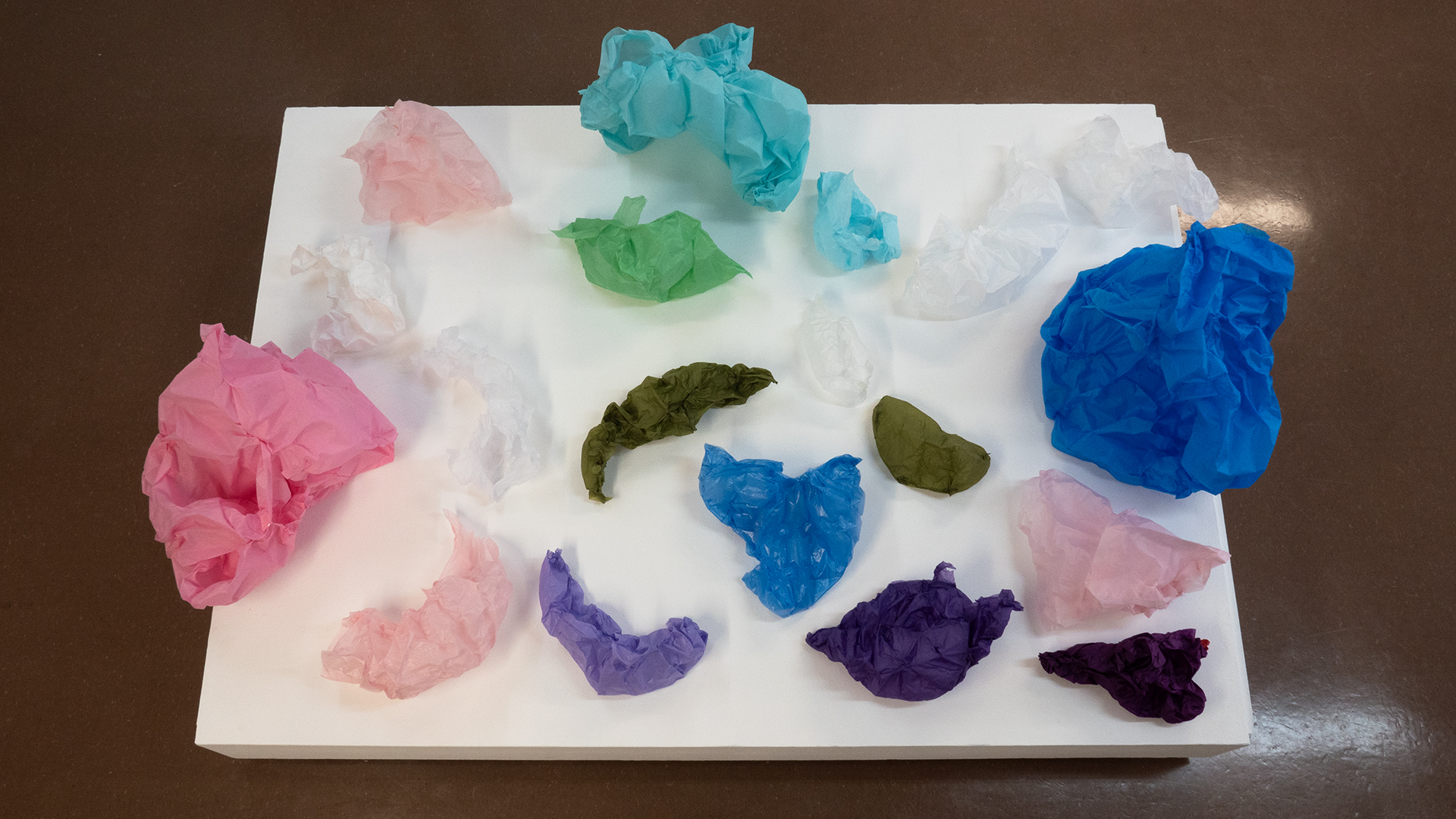Roisel Ramirez,
Artist-teacher
Delicate Attention
Artist-teacher
Delicate Attention
As a primary school art teacher, my focus in the classroom is to provide an atmosphere where students can safely experiment, expand on their innate creativity, and practice caring for one another.
 An aspect of my approach is to provide students with space for imaginative play. Lev Vygotsky, an early 20th century psychologist, brings up the importance of this. He describes a child’s breaking from reality, the separation of meaning from objects and actions, as a ‘pivot’ thus allowing the child to imagine beyond the concrete; the child assigns their own new meaning: “Rather than determined by the object itself, the child's action becomes determined by [their] ideas...” (Dalkilic and Vadeboncoeur, 2019, 225).
An aspect of my approach is to provide students with space for imaginative play. Lev Vygotsky, an early 20th century psychologist, brings up the importance of this. He describes a child’s breaking from reality, the separation of meaning from objects and actions, as a ‘pivot’ thus allowing the child to imagine beyond the concrete; the child assigns their own new meaning: “Rather than determined by the object itself, the child's action becomes determined by [their] ideas...” (Dalkilic and Vadeboncoeur, 2019, 225).In preparing for this exhibition, I was inspired by my four-year-old daughter's ability to ‘pivot’. For example, on our walks in Texas, she ‘pivots’ the sticks, stones, and leaves into other things, such as food items. Thinking of this encouraged me to mirror our interactions and take walks through the city of London where I allowed myself to find new meanings in the mundane. I was drawn to things left on the pavement, how people interacted with one another, and how people shared the space around them. I wondered if there was any correlation between these daily habits and if they affected the way people treat each other.
These delicate sculptures are an exercise in using artwork to encourage the practice of giving delicate attention to what and whom we interact with in our environment and in our community.
Dalkilic and Vadeboncoeur. (2019). Playing At, Participating In, and Transforming Cultures: A Vygotskian Perspective on the Potential of Early Childhoods. In. Whitebread, D (2019) The SAGE Handbook of Developmental Psychology and Early Childhood Education. [Online]. London: SAGE Publications.